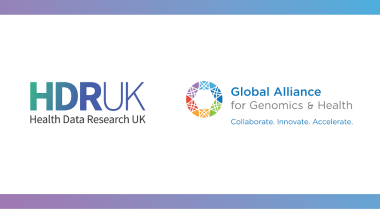
Transforming randomised clinical trials with healthcare data: Experts respond to the Lord O’Shaughnessy review
2 June 2023
Following the publication of the Lord O’Shaughnessy review on the UK's commercial clinical trials landscape, Professors Marion Mafham and Matt Sydes discuss the potential of healthcare systems data to transform clinical trials in the UK – and the changes needed to achieve this.
Earlier this year, the UK government appointed Lord James O’Shaughnessy to conduct a review of the UK’s commercial clinical trials landscape. We were delighted to see the publication of this review on 25 May 2023, providing 27 recommendations to the UK government for action.
Randomised controlled trials (RCT) are essential to reliably assess the effects of medicines, surgery and other healthcare interventions. However, there are considerable challenges that need to be addressed to enable patients to benefit from new and better treatments more rapidly.
The challenges
Cost is a significant barrier — some RCTs have become so complex and costly to run that their very existence is under threat. It is estimated that the clinical trial costs of developing new treatments are $500M to $3B, resulting in the pharmaceutical industry prioritising the development of high-income drugs.
When assessing existing treatments, researchers are increasingly turning to studies that compare health outcomes in people who receive different treatments as part of their usual care, without randomisation and outside of well-constructed clinical trials – so-called ‘Real World Evidence’ (RWE).
Such RWE studies are not, and cannot ever be, a ‘like-for-like’ comparison, because the people who received the treatment being studied are usually different in many ways from the people who didn’t receive the treatment. There are many examples, from statins to cancer treatments, in which the results from these observational studies are shown to be misleading when compared to the results of well-conducted randomised trials.
One way to reduce the cost of randomised trials is more efficient data collection. In randomised trials, data is often collected by researchers in local hospitals or GP surgeries who check local medical records, or interview the trial participants, then enter the information into study questionnaires. Staff appointed by the trial coordinating centre then manually check that the data entered into the questionnaires matches the participant’s medical records.
These methods of collecting and checking the data by hand are often expensive, wasteful and carbon-costly. This wastefulness can be made worse by over-interpretation of the current international guidelines and regulations governing randomised trials, with checking of every data point, irrespective of whether inaccuracies would have a meaningful impact on the results of the trial.
Using healthcare data to improve efficiency and reliability
We were particularly pleased to see the review’s support for the safe use of data already collected in the NHS to identify and invite patients to join clinical trials relevant to them, and for researchers to be able to analyse health outcomes for patients in trials without having to collect and check the data by hand.
Judicious use of healthcare systems data within clinical trials has the potential to make randomised trials more efficient and more reliable in three ways:
- Access to anonymised healthcare systems data would help researchers to plan clinical trials better. For example, the research team would be able to find out how many patients there are in any given location who meet the criteria for the trial before deciding to open the trial in that area.
- Using healthcare systems data to identify people who are potentially eligible for a trial and to invite them to join can enable rapid recruitment to large randomised trials. The NHS DigiTrials recruitment support service is piloting systems to enable patients in England to be invited to join randomised trials while protecting their data. For example, the service has supported 140,000 participants to be recruited to the ground-breaking NHS-Galleri GRAIL trial of a new blood test to detect cancer.
- Using healthcare systems data to identify relevant health outcomes in trial participants can substantially reducing the effort cost of collecting follow-up data for large trials. This lower cost of follow-up may allow the trial to be larger and follow-up to go on longer producing a more reliable estimate of the effects of treatment and the data is likely to be compete, even if the trial participant moves or attends another hospital or GP surgery. However, it is important to be sure that the clinically-relevant outcomes of interest can be reliably identified in the healthcare systems data. In addition, collection of data direct from study participants (for example information on quality of life) may still be important.
Taking steps to unlock the potential of healthcare data
Realising the full potential for healthcare systems data could potentially transform clinical trials – enabling more UK patients to take part in research studies and producing robust results which improve care. For this to happen, systems and services must:
- Enable safe management of patient data for anonymised analyses to inform trial design, and to invite patients to join randomised trials.
- Provide secure and timely access to data about the trial participants with appropriate consent
- Establish when such data are sufficiently accurate to be used in place of traditional trial data collection methods.
- Clinical trial teams must have the expertise in using such data for trial analyses
Furthermore, we believe a reassessment of the current international guidelines governing clinical trials, such as that currently undertaken by the Good Clinical Trials Collaborative, is needed to enable proportionate regulation is needed to unleash the combined power of randomisation and healthcare systems data to improve lives. The ICH has also just launched a consultation on possible revisions to ICH E6 –good clinical practice (GCP).
We are hopeful that by identifying and addressing areas of inefficiency and ineffectiveness, more people will be able to participate in clinical trials to produce robust results that ultimately improve the lives of patients.




